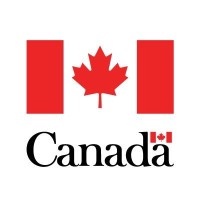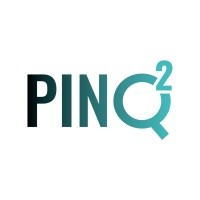
CNRC — Centre de recherche sur les dispositifs médicaux
En résumé
- Aucune condition
- Date d'ouverture : November 14, 2019
- Fabrication
- Services professionnels, scientifiques et techniques
- Soins de santé et assistance sociale
- Canada
- OBNL
- Institution publique ou parapublique
- Entreprise à but lucratif
- Toutes les échelles de revenus
- Toutes les tailles d’organisation
- Tous les groupes
- Enseignement supérieur
- Recherche
- Hôpitaux et réadaptation
- Santé mentale et intervention de crise
- Autres services de santé
- Enfants et jeunes
- Communautés rurales / isolées
- Entrepreneurs / propriétaires d'entreprise
- Milieu universitaire / étudiants
- Toutes les structures
- National
Aperçu
Accédez à des services techniques et consultatifs, à des installations de recherche et à des possibilités d’octroi de licences pour la recherche sur les instruments médicaux.
Activités financées
Cette subvention est accessible aux entreprises situées dans des zones géographiques spécifiques définies par l’organisme de financement. Les zones éligibles sont ciblées pour garantir leur alignement avec les objectifs de développement régional.
- Entreprises établies dans les provinces ou territoires admissibles aux programmes de financement fédéraux canadiens.
Admissibilité
Les critères d'admissibilité pour cette subvention peuvent varier en fonction du programme ou de l'initiative spécifique à laquelle vous souhaitez postuler. En général, les subventions du CNRC pour les dispositifs médicaux peuvent être ouvertes aux entreprises, aux organisations à but non lucratif et aux chercheurs qui proposent des projets innovants dans le domaine des dispositifs médicaux. Voici quelques critères d'admissibilité typiques pour les subventions du CNRC dans le domaine des dispositifs médicaux : 1. Les demandeurs doivent être des entités canadiennes ou avoir des partenaires canadiens. 2. Les projets proposés doivent démontrer un potentiel d'innovation significatif dans le domaine des dispositifs médicaux. 3. Les demandeurs doivent être en mesure de collaborer avec d'autres partenaires de l'écosystème canadien des dispositifs médicaux, notamment des cliniciens, des universitaires, des industriels ou des organismes gouvernementaux. 4. Les projets doivent respecter les normes éthiques et réglementaires en matière de recherche et de développement dans le secteur des dispositifs médicaux. Il est recommandé de consulter les lignes directrices spécifiques à l'appel de subventions auquel vous souhaitez postuler pour obtenir des informations détaillées sur les critères d'admissibilité spécifiques. Vous pouvez également contacter le CNRC directement pour des conseils personnalisés sur les possibilités de financement disponibles.
Qui est admissible?
Cette subvention est conçue pour stimuler l'innovation dans les dispositifs médicaux au Canada en réunissant des partenaires de diverses disciplines. Les candidatures doivent démontrer un fort potentiel d'application scientifique et technologique dans le domaine biomédical.
- Compagnies développant des technologies de microfluidique pour le diagnostic rapide et coûteux.
- Entreprises spécialisées en fabrication de logiciels biomédicaux conformes aux normes industrielles.
- Industriels collaborant avec des laboratoires et des centres de recherche en génie biomédical.
- Organisations axées sur le développement de dispositifs pour le diagnostic in vitro et les thérapies cellulaires.
- Centres de recherche œuvrant dans la création et l'application de technologies de santé numérique.
Dépenses admissibles
Cette subvention vise à appuyer l'innovation et le développement dans le domaine des dispositifs médicaux au Canada. Les projets éligibles se concentrent sur la recherche appliquée et l'exploitation des avancées technologiques dans le secteur biomédical.
- Recherche et développement de dispositifs médicaux utilisant la microfluidique et les laboratoires sur puce.
- Développement de logiciels biomédicaux répondant aux normes de l'industrie pour des applications de santé numérique.
- Création de dispositifs pour le diagnostic in vitro et le développement de thérapies cellulaires.
- Conception et prototypage de microsystèmes vivants, dont les organes sur puce.
- Mise en œuvre de solutions de suivi de santé numériques, notamment pour les soins à distance et sans contact.
- Projets de bioanalytique destinés à des environnements extrêmes comme l'espace ou les communautés éloignées.
Zone géographique admissible
La subvention couvre des dépenses spécifiques directement liées à la mise en œuvre et au succès du projet.
- Salaire et avantages du personnel impliqué dans le projet.
- Achat d’équipements et de matériaux nécessaires à l’exécution du projet.
- Frais de déplacement et d’hébergement directement associés au projet.
- Honoraires de consultants pour un soutien technique ou une expertise externe.
- Coûts de marketing et de sensibilisation pour promouvoir les résultats du projet.
Comment appliquer
Initial Contact
- Contact Priyum Koonjul, Director of Business Development, to express your interest and gain insight into the application process.
- Utilize the contact information provided: Email and LinkedIn.
Review Grant Requirements
- Carefully read through the grant details to ensure understanding of the criteria and expectations.
- Identify key areas that align your project with the funding priorities.
Prepare Application
- Draft a detailed project proposal, highlighting innovation, objectives, and expected outcomes.
- Compile necessary documentation such as supporting research, budgets, timelines, and letters of support.
Review and Finalize
- Ensure all sections of the application are completed and reviewed for accuracy and completeness.
- Seek feedback from colleagues or mentors to improve the application quality.
Submission
- Submit the completed application as instructed, ensuring it is sent before any specified deadlines.
- Retain copies of all submitted documents for your records.
Confirmation and Follow-up
- Receive confirmation of receipt from the fund provider and note any tracking or application numbers.
- Follow up with the contact person if no confirmation is received within the expected timeframe.
Informations supplémentaires
Voici des informations supplémentaires pertinentes pour cette subvention :
- Les innovations doivent être alignées avec les standards industriels pour les dispositifs médicaux et les logiciels biomédicaux.
- La collaboration avec des cliniciens, des industriels et des universitaires est fortement encouragée pour tirer parti du réseau existant.
- L'accent est mis sur la recherche translationnelle pour améliorer les soins cliniques et pédiatriques.
- Des installations spécialisées, telles que des laboratoires de microfluidique et de fabrication de matériaux, sont mises à disposition pour faciliter la recherche et le développement.
- Des démonstrations ou des animations illustrant le fonctionnement des technologies développées sont prévues pour la promotion du projet.
Questions fréquentes sur le programme CNRC — Centre de recherche sur les dispositifs médicaux
Qu'est que le CNRC — Centre de recherche sur les dispositifs médicaux?
Qui est admissible au programme CNRC — Centre de recherche sur les dispositifs médicaux ?
Quelles dépenses sont admissibles pour CNRC — Centre de recherche sur les dispositifs médicaux?
Qui puis-je contacter pour plus d'informations sur le CNRC — Centre de recherche sur les dispositifs médicaux?
Où le programme CNRC — Centre de recherche sur les dispositifs médicaux est-il disponible ?
Le CNRC — Centre de recherche sur les dispositifs médicaux est-il une subvention, un prêt ou un crédit d'impôt?
Qui est sont les bailleurs de fonds du CNRC — Centre de recherche sur les dispositifs médicaux?
D’autre aides financières de ce type

Programme d’aide à la recherche industrielle (PARI) — Programme emploi jeunesse

Mitacs Accélération

ISDE — Intelligence artificielle (IA)

Grappes d’innovation mondiales

PI pour les entreprises

Programme sur l'usage et les dépendances aux substances (PUDS)

Programme amélioré de paiements de transfert de la sécurité routière (PPTSR)

Plateforme d’innovation numérique et quantique — PINQ²

Fonds de la nature du Canada pour les espèces aquatiques en péril (FNCEAP)
